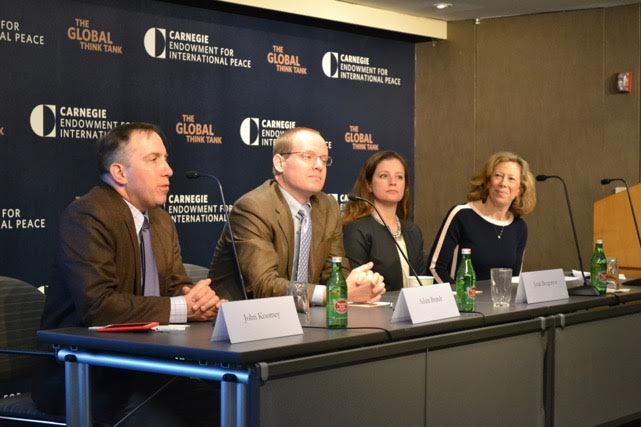Understanding the life-cycle emissions of oil: Results from and implications of the new Oil Climate Index

- This event has passed.

Oil is changing. Tight shale oil, oil sands, heavy oils, ultra-deep oils, depleting oils, oil shale, and an expanding array of hydrocarbons are vying for market share. Consumers may not notice the transformation—aside from recent price fluctuations, little appears to have changed at the gas pump. But behind-the-scenes, the oils themselves, how they are extracted and processed, and the products into which they are made, are shifting in substantial ways.
These changes raise important questions: What are the characteristics and properties of these oils? How do they compare to one another in terms of their climate impacts? And what steps can investors, oil companies, and consumers take to minimize greenhouse gas emissions from oil consumption?
The Carnegie Endowment for International Peace, Stanford University, and the University of Calgary have developed the first-of-its-kind Oil-Climate Index, modeling these complex interactions. This data will shape how consumers, investors, industries, NGOs, and policymakers approach current and future oil production, refining, and consumption.
This talk will describe the results from the first phase of the analysis (for 30 global oils) that was released in March 2015, and present preliminary results for the second phase, in which we’ll have characterized oils representing about 20% of global oil production.
Speakers
DEBORAH GORDON
Deborah Gordon is director of Carnegie’s Energy and Climate Program, where her research focuses on oil and climate change issues in North America and globally.
JONATHAN KOOMEY
Jonathan Koomey is a Research Fellow at the Steyer-Taylor Center for Energy Policy and Finance at Stanford University. His work spans climate solutions, critical thinking skills, and the energy and environmental effects of information technology.
ADAM BRANDT
Adam Brandt is an assistant professor at Stanford University. He is interested in reducing the environmental impacts of energy systems.
JOULE BERGERSON
Joule Bergerson is an assistant professor at the University of Calgary. Her primary research interests are systems-level analysis for policy and decision making of energy system investment and management.
